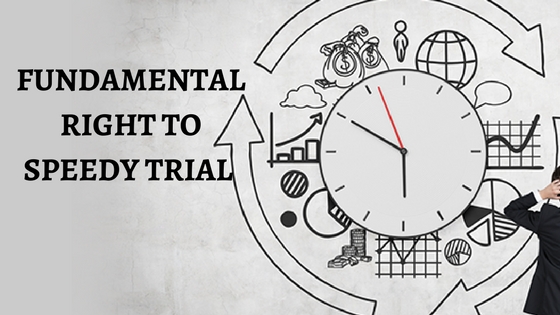Aapka Consultant Judgment Series- In this series, we are providing case analysis of Landmark Judgments of Hon’ble Supreme Court of India.
Ramachandra Rao v. State Of Karnataka
AIR 2002 SC 1856, [2002] 4 SCC 578
JUDGES: R.C. Lahoti, N. Santosh Hegde, Ruma Pal and Arijit Pasayat
Date of Decision: 16-04-2002
FACTS:-
The appellant-Electrical Superintendent was accused under the Prevention of Corruption Act, 1988 but due to prolonged delay of two years made in the proceeding trial, Special Court acquitted him. High Court, in appeal preferred by the respondent-state, set aside the order of acquittal and remands the case to the trial court for fresh disposal. While giving this order High Court not only condones a delay of 55 days but also allowed the appeal itself without even issuing notice to the appellant. Hence, the aggrieved appellant has filed appeal before the Apex Court.
ISSUE:-
Whether is it necessary to have limitation bars terminating criminal trials and proceedings?
JUDGMENT:-
The matter was referred to the Constitution bench of seven judges to decide the validity of its various guidelines and directions issued in their previous judgment by the small bench, principally, in appeals Common Cause v. Union of India [1996 (4) SCC 33], Common Cause v. Union of India [1996 (6) SCC 775], Raj Deo Sharma v. State of Bihar [1998 (7) SCC 507] and Raj Deo Sharma v. State of Bihar [1999 (7) SCC 604] having similar facts of this case. Accordingly, the Constitutional bench observed the aforementioned case in the light of its one of the earlier judgment in Abdul Rehman Antulay and Ors. v. R.S. Nayak & Anr. [1992 (1) SCC 225] decided by the five judges bench. The dictum in this case is correct and holds good. While dealing with the cases in Common Cause (I), Common Cause (II), Raj Deo Sharma (I) and Raj Deo Sharma (II), the Court made to the conclusion that the directions in these cases prescribed the time-limits or bars of limitation at the end of which the trial court would be obliged to terminate the proceedings and necessarily acquit or discharge the accused. These decisions run counter to that extent to the dictum of Constitution Bench in A.R. Antulay’s case.
The Constitution Bench in A.R. Antulay’s case has turned down the rule of time-limits as bar beyond which trial cannot proceed and placed on records the exposition of law as to right to speedy trial flowing through Article 21. Apart from Article 21, the courts can also prevent undue or inordinate delays in criminal case under S. 309 and S.311 of Cr.P.C. if pending for too long. Even inherent power of the High Court under S. 482 can be invoked to secure the ends of justice. No doubt, the bar of limitation was crafted to provide a solution to the problems like in this case to avoid delays. But a solution of this nature cannot be said to be an apt solution. The guidelines laid down under this case are not exhaustive but only illustrative.
The Constitution bench outlined the right to speedy trial a manifestation of fair, just and reasonable procedure enshrined in Article 21 and such right must be followed at every stage of the trial commencing with an accusation till final verdict of the court.
Therefore, the Constitution bench court deleted the bars of limitation made by the small bench of the apex court on the grounds of two reasons:
It amounts to judicial legislation, which is not possible; and
It runs counter to the doctrine of precedents.
Thus, appeal was allowed and the High Court was directed to hear and decide the appeal afresh after issuing notice to the respondent keeping above rules in mind.
HELD:-
Hence, the Apex Court held that it was neither advisable, nor feasible, nor judicially permissible to draw or prescribe an outer limit for conclusion of all criminal proceeding to protect the right to speedy trail enshrined by the Article 21 of the Constitution.
To Get Legal Opinion from Advocates/ Legal Experts, Please click here
To Get Legal Opinion from Retired Hon’ble Judges, Please click here












